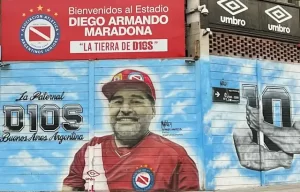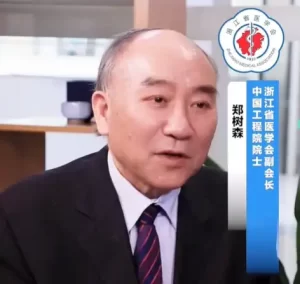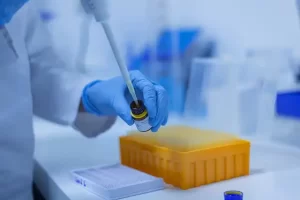Life expectancy shortened by 14 years if diabetes Diagnosed at 30
- Paternal Microbiome Perturbations Impact Offspring Fitness
- New Report Casts Doubt on Maradona’s Cause of Death and Rocks Manslaughter Case
- Chinese academician unable to provide the exact source of liver transplants
- Early Biomarker for Multiple Sclerosis Development Identified Years in Advance
- Aspirin Found Ineffective in Improving Recurrence Risk or Survival Rate of Breast Cancer Patients
- Child Products from Aliexpess and Temu Contain Carcinogens 3026x Over Limit
Life expectancy shortened by 14 years if diabetes Diagnosed at 30
- AstraZeneca Admits for the First Time that its COVID Vaccine Has Blood Clot Side Effects
- Was COVID virus leaked from the Chinese WIV lab?
- HIV Cure Research: New Study Links Viral DNA Levels to Spontaneous Control
- FDA has mandated a top-level black box warning for all marketed CAR-T therapies
- Can people with high blood pressure eat peanuts?
- What is the difference between dopamine and dobutamine?
- How long can the patient live after heart stent surgery?
Life expectancy shortened by 14 years if diabetes Diagnosed at 30
Diagnosed with diabetes at the age of 30, and your life expectancy is shortened by 14 years!
A study involving over 1.5 million individuals has revealed a 169% increase in the overall risk of death when diabetes is diagnosed in one’s thirties.
Modern society has brought tremendous material wealth, but it has also brought about diseases. Obesity, excessive nutrition, and inadequate exercise have accelerated the global prevalence of type 2 diabetes. In 2021, approximately 527 million adults worldwide had diabetes, and the age at which it is diagnosed is progressively getting younger.
Diagnosing diabetes is associated with a reduced life expectancy. Previous studies suggested that adults with type 2 diabetes tend to die about six years earlier on average than those without diabetes. However, this was a general statistic and did not address the impact of the age of diagnosis.
An article published in “The Lancet Diabetes & Endocrinology” examined data from a cohort study of over 1.5 million individuals.
It found a significant linear dose-response relationship between the time of diagnosis of type 2 diabetes and the increased risk of overall mortality.

Compared to non-diabetic individuals, being diagnosed with type 2 diabetes between the ages of 30-39 is associated with a 169% increased risk of death. For those diagnosed in their 40s, 50s, 60s, and 70s or older, the risk increases by 126%, 84%, 57%, and 39%, respectively.
In summary, for every 10 years earlier the diagnosis occurs, it is associated with a reduction in life expectancy by 3-4 years.
The data used in this study were drawn from two large databases: the UK Biobank and the Emerging Risk Factors Collaboration (ERFC). These databases included data from 1,515,718 participants from 19 high-income countries.
The median baseline age of the participants was 55 years, with 45.6% being male. The median follow-up period was 12.5 years, during which 246,670 participants died. Participants diagnosed with diabetes at the beginning of the study had a median diagnosis age of 54.1 years, while the median diagnosis age during the follow-up was 64.9 years.
Age-adjusted analysis revealed a clear linear dose-response relationship between earlier diabetes diagnosis and the risks of overall mortality, cardiovascular mortality, and mortality from other causes.
Compared to individuals without a history of diabetes, those diagnosed between the ages of 30-39, 40-49, 50-59, 60-69, and 70 and above, had an increased risk of overall mortality by 169%, 126%, 84%, 57%, and 39%, respectively.
For the group diagnosed between the ages of 30-39, there was a 320% increase in the risk of cardiovascular-related death, a 55% increase in cancer-related death risk, and a 299% increase in death risk from other causes.
In general, for every 10 years earlier the diagnosis of diabetes occurs, the risk of overall mortality increases by 14%, cardiovascular-related death risk increases by 19%, and death risk from other causes increases by 18%. (However, cancer-related death risk slightly decreases by 5%).

The relationship between the age of diagnosis and the risk of death
Based on life expectancy data from the United States in 2015, using 50 years as the evaluation point, individuals diagnosed with diabetes at the age of 30 are estimated to live an average of 14 years less than those without diabetes, while the numbers are 10 years less for those diagnosed at 40 and 6 years less for those diagnosed at 50.
According to European Union data from 2015, these figures are 13 years, 9 years, and 5 years less, respectively.

The data above indicates that the earlier diabetes is diagnosed, the higher the risk of death. This suggests that the relative impact of diabetes is greater at an age when the potential risk of death is lower in the general population. Conversely, in older individuals with a higher potential risk of death, the impact of diabetes is relatively smaller.
Previous research has shown that individuals who develop type 2 diabetes at a younger age may have a more aggressive phenotype, including higher BMI, higher blood pressure, higher atherogenic lipid profiles, and more challenging blood sugar control, all of which may lead to premature death.
As diabetes becomes more prevalent among younger populations worldwide, it is imperative for us to pay greater attention to our health.
References:
[1] https://www.thelancet.com/journals/landia/article/PIIS2213-8587(23)00223-1/fulltext#seccestitle120
Life expectancy shortened by 14 years if diabetes Diagnosed at 30
(source:internet, reference only)
Disclaimer of medicaltrend.org
Important Note: The information provided is for informational purposes only and should not be considered as medical advice.



